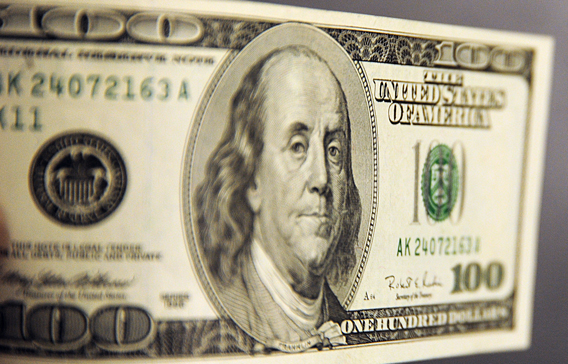Attempts made by the Central Bank of Egypt (CBE) in the past year have resulted in high degrees of variance in the US dollar’s value against the Egyptian pound. However, these measures have been ineffective in ensuring foreign currency liquidity, according to an analyst at Moody’s and to workers at foreign exchange counters.
The CBE’s recent decision to raise the cap on dollar deposits from $50,000 to $250,000 per month for local companies will not mitigate pressures on foreign currency liquidity that banks are facing, international bond credit rating agency Moody’s said in a report issued Monday.
“Although the central bank’s action aims to increase the availability of dollars to the local banks, it will not be sufficient to ease the increasing liquidity pressures in foreign currencies that Egyptian banks face, since new dollar deposits will still be below the demanded amounts necessary to finance imports,” the agency’s report read.
The CBE decision included high-priority products, such as pharmaceuticals, production inputs, raw materials, food, and industrial machinery, excluding other luxury goods.
Ahmed Sheha, head of the importers division at the Cairo Chamber of Commerce, argued that the decision provides preferential treatment for certain imports, while raising the financial threshold for a significant number of others.
In February 2015, the CBE decided to set a $10,000 daily deposit cap on the condition that monthly deposits do not exceed $50,000. The bank stated that its decision aimed to decrease the value of the dollar against the Egyptian pound in the informal currency exchange market wherein commercial foreign exchange counters and those without private affiliations circumvent the official exchange values set by the CBE.
The bank believed that importers that were unable to exchange pounds for dollars from banks resorted to the informal market to complete currency exchange transactions. The bank contended that the imposition of this cap would mitigate informal currency exchange dealings, thus forcing participants in the informal currency exchange market out of business.
However, the bank’s strategy proved ineffective, as the value of the dollar continued to increase against the pound.
“The demand for dollars remains significantly above the amounts available from banks. As a result, a number of Egyptian companies are not able to import, creating bottlenecks in the economy and restricting the country from achieving the 5% GDP growth it targets for 2016”, Moody’s said.
Despite the CBE’s measures to address the lack of liquidity, banks’ foreign currency liquidity rates dropped to 49% in September 2015, while their loan-to-deposit ratios in foreign currencies rose to 69% in September 2015, from 56% in 2012.
A day after the CBE announced its decision to raise the cap on dollar deposits on 26 January, the average value of the dollar increased to EGP 8.6 on the informal market, before it surged to between EGP 8.7 and EGP 8.8 in the following week, according to a source in the informal currency exchange market who spoke to Daily News Egypt.
On Monday, the average value of the dollar declined to EGP 8.6 on the informal market. A worker at a foreign exchange counter stated that Governor of CBE Tarek Amer sent a representative to meet with members of the foreign exchange division at the Chambers of Commerce. The CBE official met with chamber in an attempt to curtail violations among members of the commercial foreign exchange market.
Wael Badawy, an executive director at a major exchange company, said that the demand for the dollar decreased after the presidential decree to increase tariffs on 500 commodities was announced.
The Egyptian pound fell by 9% in value against the US dollar in 2015, dropping its exchange value of $1/EGP 7.18 at the beginning of the year to $1/EGP 7.83 at year’s end.




